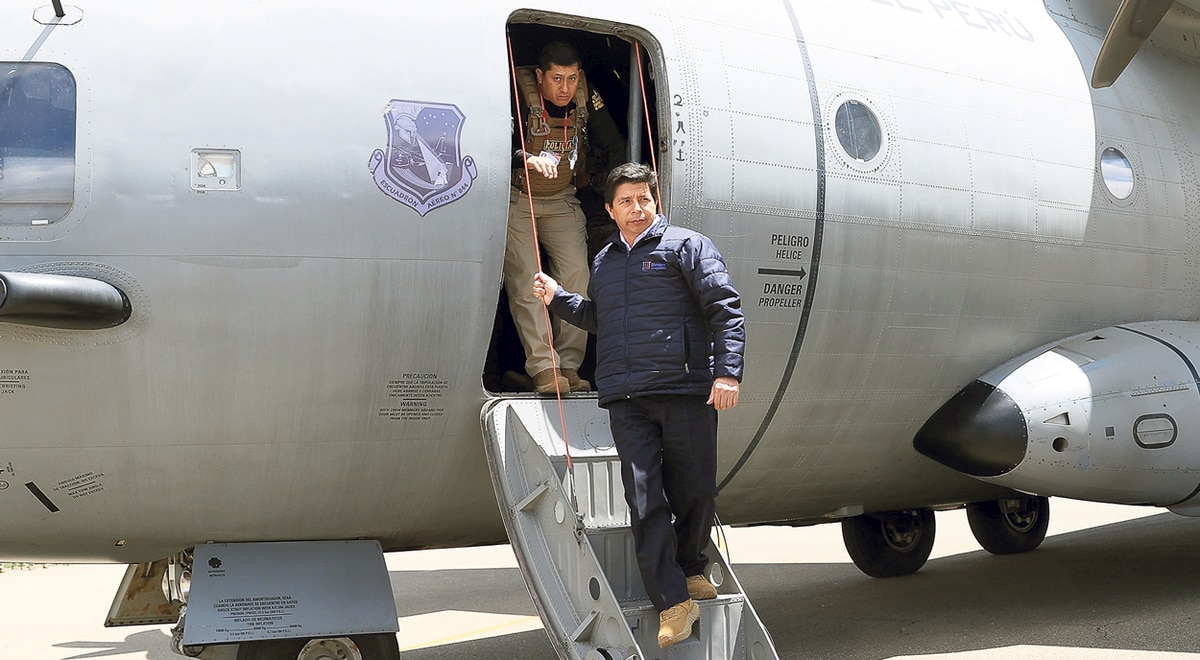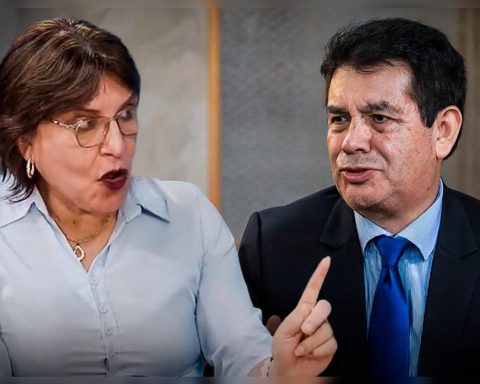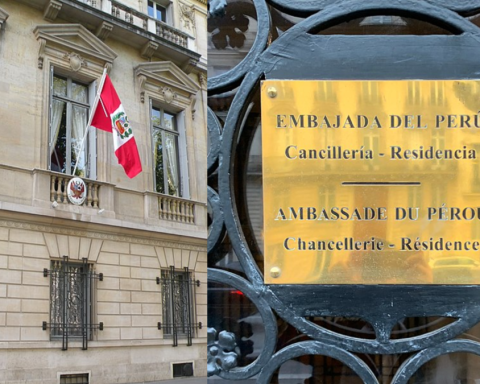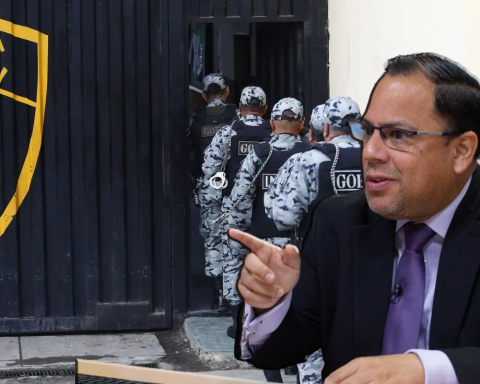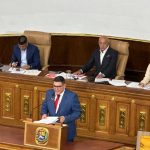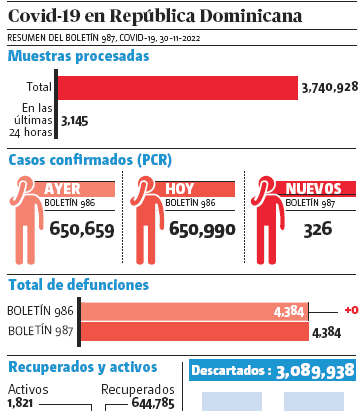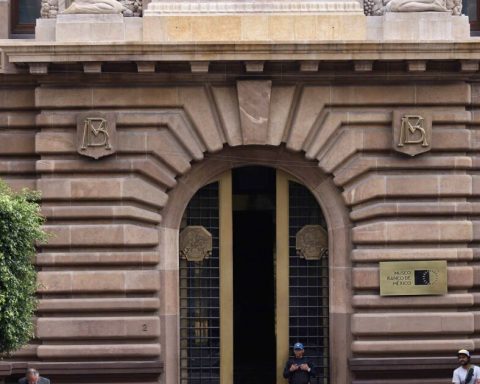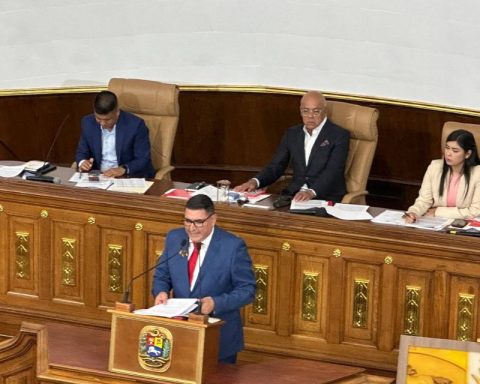Congress ignored the call for truce by the Organization of American States (OAS) to prevent the crisis in our country from worsening.
Yesterday, at night, with 73 votes in favor, 32 against and 6 abstentions, the Plenary approved the admission of the vacancy against the president Pedro Castillo. The outcome was foreseen, although the deliberation in the hemicycle made it possible to understand the interests of each bank.
the lift
The plenary session had been called for 6:30 in the afternoon. The author of the vacancy motion, the non-grouped congressman Edward Málaga, began his support 14 minutes later. “We all know that, according to the National Prosecutor, the president accumulates 51 tax files, where there are cases such as the shadow cabinet, influence peddling, crimes against public peace and fraud in public tenders,” he said.
Malaga also stressed that most of the people around the president are in custody. “What we are going to assess is whether the president’s conduct has become unsustainable because it affects the institutional framework,” he specified.
Versus
When he finished his presentation, the representatives of each bench took the floor. The Minister of Tourism, Roberto Sánchez, who is also a parliamentarian for Cambio Democrático, had been present in the Chamber. Sánchez had attended to remind his colleagues of the OAS pronouncement: “He is proposing a political truce to all political forces and that we do not escalate these disagreements any further,” he said.
The right-wing benches, however, rejected the invocation.
“I would never sit down and talk with a corrupt government. For this reason, keep in mind that when you are going to vote, we are going to show the country what the way out of the political crisis is,” replied Diego Bazán, from Avanza País.
Parliamentarian Roberto Chiabra, for his part, warned that the risk of not specifying the vacancy is that the president dissolves the Legislature. “Congress is about to leave. I want to hear them say, when they leave, that they didn’t realize it, ”he warned.
The debate in the Chamber lasted two hours.
At 8:16 p.m., the president of the Board of Directors, José Williams Zapata, called on the legislators to vote.
Votes that added
On November 29, when Congressman Málaga presented the motion, it had 67 signatures. In statements to the press, he was confident of getting the 87 votes needed to remove President Castillo.
The regulations of the Congress indicate that to admit a vacancy motion, 52 parliamentarians are needed in favor. With the support of the benches of Fuerza Popular, Avanza País, Renovación Popular, APP and the majority of Acción Popular and Somos Perú, it was imminent that he was going to overcome that barrier.
Of the 73 legislators who voted in favor of admission, the surprise came from Peru Libre: Waldemar Cerrón, Margot Palacios, Abel Reyes and Flavio Cruz Mamani. The message from this bench to the Executive, according to sources from this group, is that they will not give Prime Minister Betssy Chávez a vote of confidence. This is how they reveal what they are capable of against the president in case they do not obtain the quota they desire in the cabinet.
But they were not the only ones who changed their position. During the debate, Enrique Wong, spokesman for Podemos Peru, demanded an end to the confrontation, but in the end he endorsed the admission. The same was done by his colleague promoter of the early general elections, Digna Calle, who joined the vacant choir.
PA, an enigma
In Popular Action, except for legislators Darwin Espinoza and Elvis Vergara, everyone, including “Los Niños”, marked green. Espinoza voted in abstention. While Vergara, who had spoken out against it, did not mark attendance when they called him to vote. Espinoza and Vergara are accused of being congressmen linked to the Castillo government.
The Fuerza Popular bench also had its exception. The orange congressman Raúl Huamán, who visited the Government Palace last month, was absent from the session and the vote. As reported, Huamán has spoken out against it. The Fujimorista assures that he distances himself from this new attempt for a presidential vacancy. According to him, in addition, one of his bench, 30% of his colleagues are in favor of everyone staying until 2026.
With these additions and subtractions, the opposition managed to take the first step towards their vacancy claims. However, the leftist benches and their pro-government allies demonstrated that, despite the absences they had, they are a block capable of curbing such aspirations: 32 voted against and 6 abstained. Peru Libre reduced their strength. However, they are six votes away from preventing the opposition from reaching two thirds.
Streamline the process
What this group of congressmen could not avoid was that the Board of Directors of Parliament accelerated the debate on the possible dismissal of the president.
On November 29, after Málaga presented his motion, the Board of Spokespersons of Parliament had agreed that on Monday, December 12, the president would be summoned to plenary to defend himself and then the parliamentarians would decide his future.
But after the motion was admitted, the head of the Board of Directors, José Williams Zapata, forced the date to be changed to Wednesday, December 7, at 3 in the afternoon. When he put this proposal to a vote, 59 parliamentarians supported him, but 45 rejected it.
Then Congressman Alex Flores, from Peru Libre, proposed a reconsideration of the vote where the new date was decided, because next week the legislators will meet for representation in their regions. “We are respectful of the plenary decision, but it does not seem appropriate to us,” Flores claimed.
His request was flatly rejected.
At 8:46 p.m., as soon as the president of the Board of Directors adjourned the session, the senior officer, José Cevasco, notified President Castillo about the decision of Congress.
what’s coming
For next Wednesday, December 7, the president can attend to defend himself, as well as just send his lawyer. The Republic consulted its legal defender, Benji Espinoza, if the president will go to the Chamber, but at the closing of this note the lawyer did not respond to our communications.
Despite everything narrated, it would remain uncertain whether the promoters of the presidential vacancy managed to obtain 87 votes. For parliamentarians on the left, what happened last night is just a Pyrrhic victory. But there are five days left in which each side -the government and the parties calling for Castillo’s departure- will seek to tip the scales in favor of their demands. It is a political brawl where the word “truce” does not exist.
They also seek to disable or suspend it
The Subcommittee on Constitutional Accusations of Congress has two controversial complaints against the head of state: one for treason and another for alleged criminal organization. With these, they seek to insist on impeachment to achieve disqualification from public service against the president. The disqualification requires 66 votes in favor in plenary, without the participation of the members of the Permanent Commission.
Likewise, the Constitution Commission approved in less than two weeks a prediction to suspend the president. The initiative is from Renovación Popular and Somos Perú. The text modifies the regulation so that a motion for suspension, with 15% of the signatures of the total number of parliamentarians, has priority in the plenary debate. Just the congressmen Roselli Amuruz, from Avanza País, and Esdras Medina, from Somos Perú, promote a suspension motion.
reactions
Diego Bazán, Country Advances
“I would never sit down to talk with a corrupt government. For this reason, keep in mind that when you are going to vote, we are going to demonstrate to the country what the way out of the political crisis is.”
Ruth Luque, Democratic Change
“It is evident that this confrontation is in line with who falls first and the population sees a political class that is not up to the task. There is a food and agricultural crisis that should be the center of attention”.
Elvis Vergara, Popular Action
“We cannot endorse the presidential vacancy motion (against President Pedro Castillo), we are already going for 10 months and Mrs. Karelim López has not been able to demonstrate what she has said.”
Roberto Chiabra, congressman
“Congress is about to leave. I want to hear them say, when they leave, that they didn’t realize it. If we talk about legality and democracy, let’s see who is generating this scenario”.
